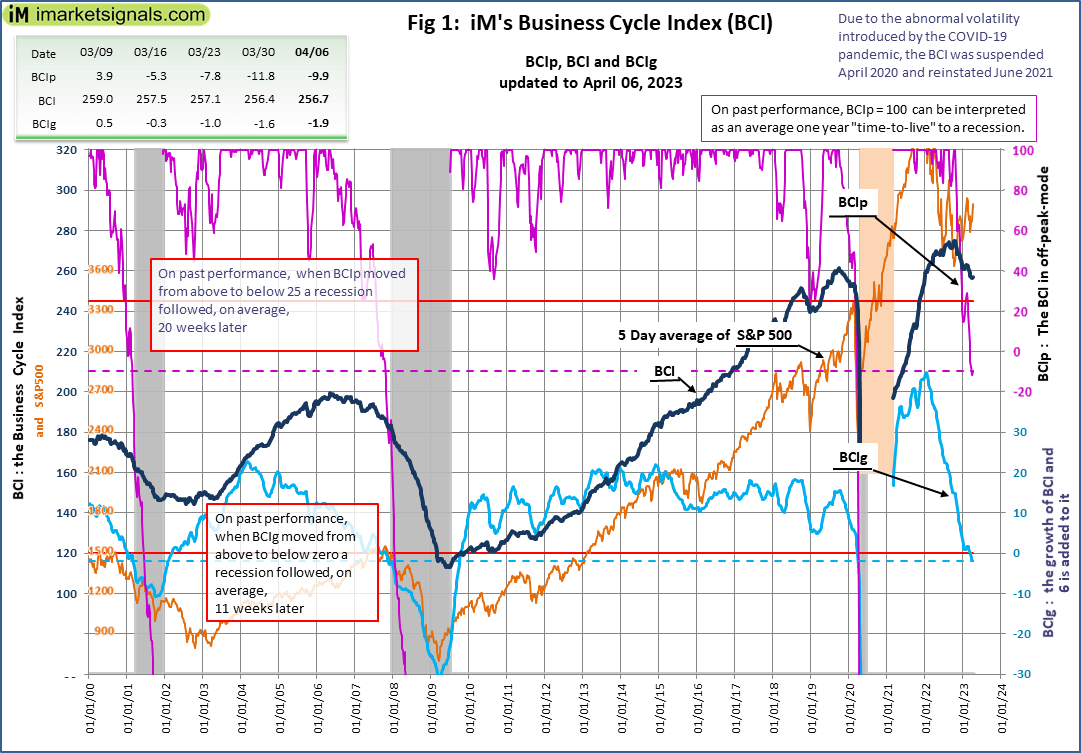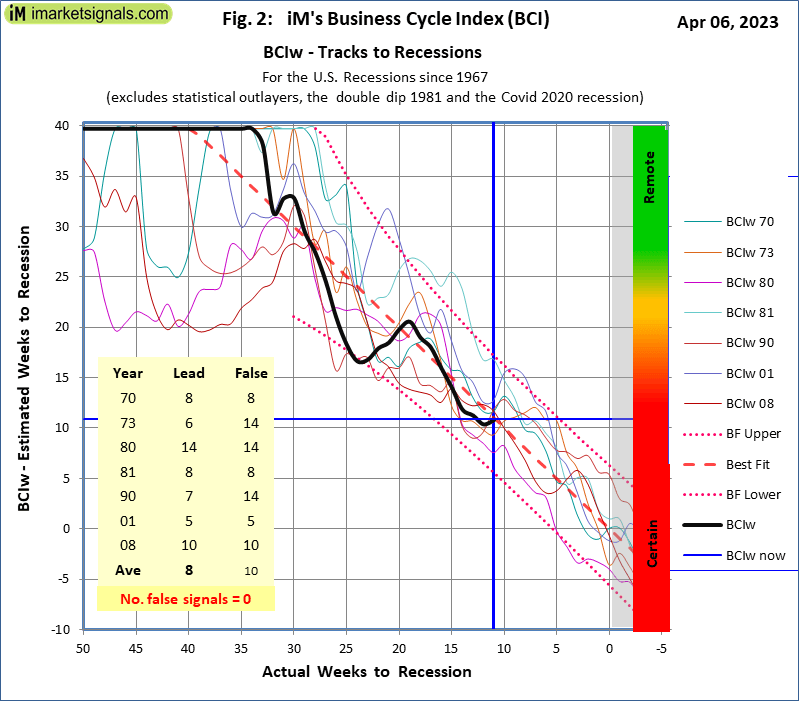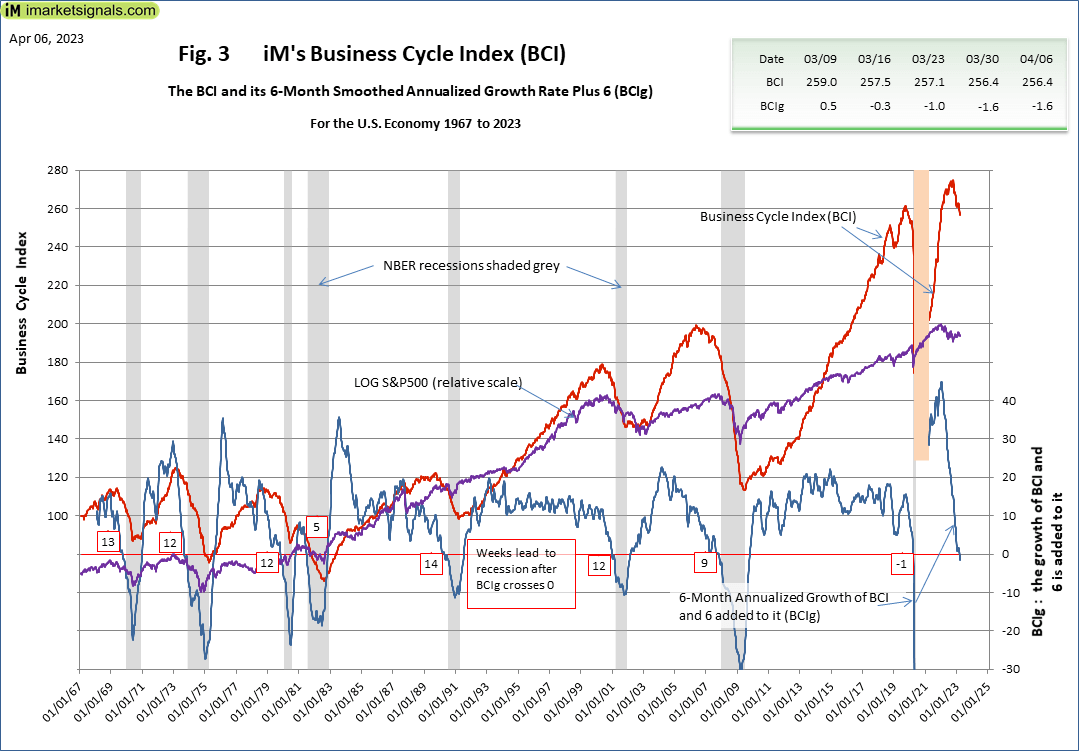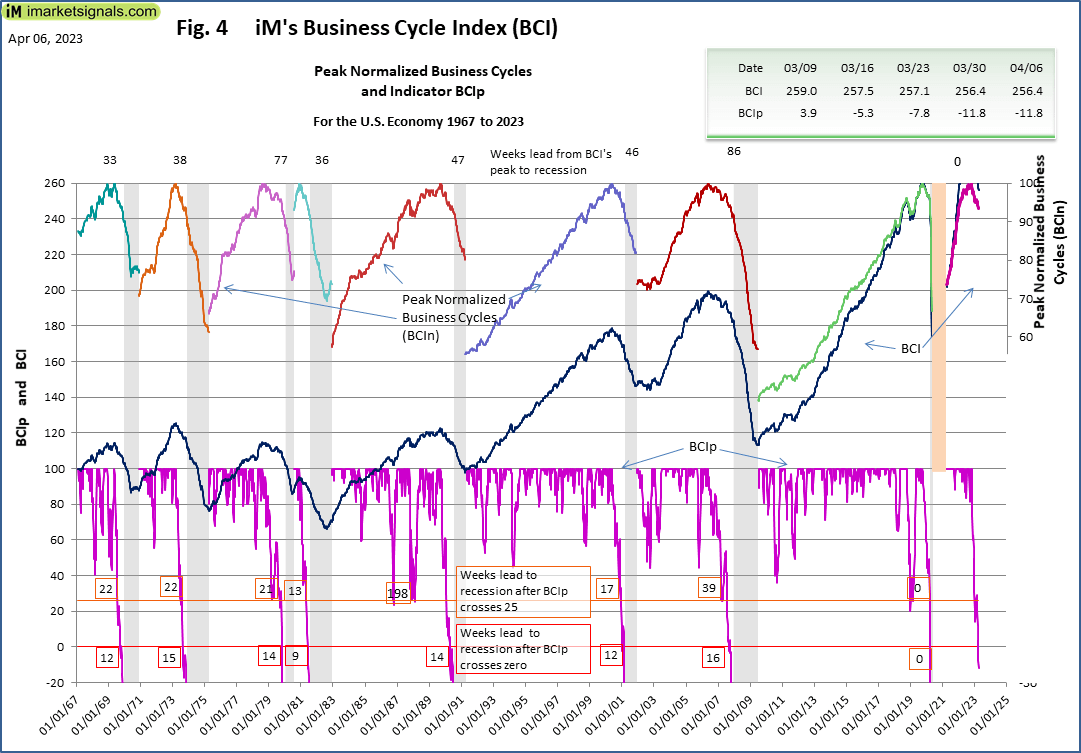- Knowing when the U.S. economy is heading for recession is paramount to successful investment decisions.
- Our weekly Business Cycle Index would have provided early reliable warnings for the past seven recessions and signaled the Covid 2020 recession one week late.
- The Department of Labor backward revised nearly two years of seasonal adjusted data.
- The BCIg is now signalling a recession since mid March 2023 with a 12 weeks average lead time.
- The BCIw is now signalling a recession, earliest in 5 weeks but not later than 17 weeks.
The Department of Labor revised its method for seasonally adjusting the initial and continued claims (see DOL note). In short, as the COVID epidemic took hold the DOL in March 2020 changed the calculation method for seasonal adjustment from a multiplicative factor to an additive factor. As of the April 6, 2023 release the DOL reverted to the multiplicative adjustment, but also backward revised the data for nearly two years, that is from June 2021. The effect of this is that with the traditional multiplicative method for seasonal adjustment BCI is downward revised. Both the BCIg and BCIw are signalling a recession.
- BCIg now signals a recession since 3/16/2023 with a lead time of 12 weeks.
- BCIw now signals a recession earliest in 5 weeks but not later than 17 weeks, confirming the BCIg signal
The iM Business Cycle Index (BCI) was designed for a timely signal before the beginning of a recession and is fully described in the three articles all found here. In summary, the iM BCI combines the following seven series of economic data: the 10-year treasury yield, 3-month treasury bill yield, S&P500, Continues Claims Seasonally Adjusted, All Employees – Total Private Industries, New houses for sale, and New houses sold.
The BCI on its own does not provide recession signals, but after further manipulation of the series two indicators are extracted that reliable signal looming recessions:
- The six-month smoothed annualized growth rate of an economic series series is a well-established method to extract an indicator from the series. We use this method to obtain BCIg (growth). Here BCIg is the calculated growth rate with 6.0 added to it, which generates, on past performance, an average 11-week leading recession signal when BCIg falls below zero.
- We also found that the BCI retreats in a well-defined manner from its cyclical peak prior to recessions. This allowed the extraction of the alternative indicator BCIp (peak), and its variant BCIw (weeeks). Past performance shows that on average 20 weeks prior to a recession the BCIp value crossed 25 to the downside.
The two indicators BCIg and BCIp could be used as a sell signal for ETFs that track the stock markets, like SPY, IWV, VTI, etc. (see our article) or stocks in general.
Figure 1 plots BCIp, BCI, BCIg and the S&P 500 together with the thresholds (red lines) that need to be crossed to be able to call a recession. Here we note that BCIp now at 18.5 has crossed the 25 threshold firmly to the downside. Historic data of the past recession shows that at this value the economy never recovered to avoid a recession.
In our 2014 article iM’s BCIw: A Weeks to Recession Indicator we show how the BCIp (deviation from previous peak of BCI) indicator can be transformed to a BCIw (weeks to next recession) derived from the previous BCIp tracks to the NBER defined recession. The below Figure 2 plots the BCIw tracks to the past recession together with the current value of BCIw with its endpoint on the best fit average value of the past recessions. From this graph we identify that the BCI predicts the next recession to be at the earliest 12 weeks away but not later than 25 weeks.
Figure 3 plots the history of BCI, BCIg and the LOG (S&P 500) since July 1967, and Figure 4 plots the history of BCIp, i.e., 46 years of history, which includes seven recessions, each of which the BCIg and BCIp managed to indicate timely; the weeks leading to a recession are indicated on the plots.
Also, the historical values can be downloaded from iMarketSignals as an MS Excel sheet.





It appears BCI was not updated this week.